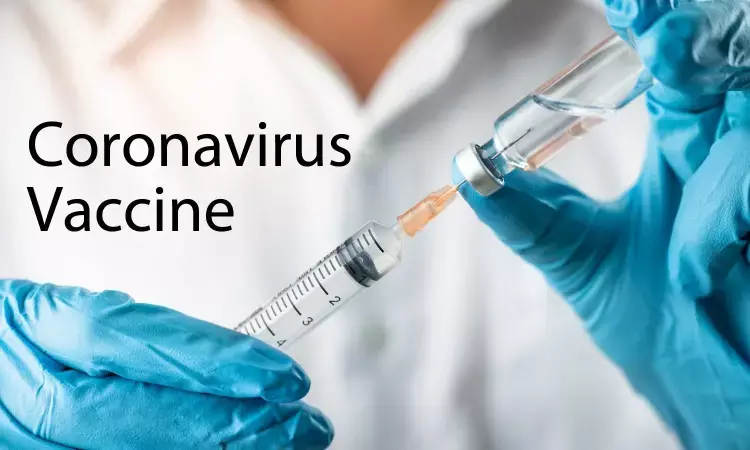- Home
- Medical news & Guidelines
- Anesthesiology
- Cardiology and CTVS
- Critical Care
- Dentistry
- Dermatology
- Diabetes and Endocrinology
- ENT
- Gastroenterology
- Medicine
- Nephrology
- Neurology
- Obstretics-Gynaecology
- Oncology
- Ophthalmology
- Orthopaedics
- Pediatrics-Neonatology
- Psychiatry
- Pulmonology
- Radiology
- Surgery
- Urology
- Laboratory Medicine
- Diet
- Nursing
- Paramedical
- Physiotherapy
- Health news
- Fact Check
- Bone Health Fact Check
- Brain Health Fact Check
- Cancer Related Fact Check
- Child Care Fact Check
- Dental and oral health fact check
- Diabetes and metabolic health fact check
- Diet and Nutrition Fact Check
- Eye and ENT Care Fact Check
- Fitness fact check
- Gut health fact check
- Heart health fact check
- Kidney health fact check
- Medical education fact check
- Men's health fact check
- Respiratory fact check
- Skin and hair care fact check
- Vaccine and Immunization fact check
- Women's health fact check
- AYUSH
- State News
- Andaman and Nicobar Islands
- Andhra Pradesh
- Arunachal Pradesh
- Assam
- Bihar
- Chandigarh
- Chattisgarh
- Dadra and Nagar Haveli
- Daman and Diu
- Delhi
- Goa
- Gujarat
- Haryana
- Himachal Pradesh
- Jammu & Kashmir
- Jharkhand
- Karnataka
- Kerala
- Ladakh
- Lakshadweep
- Madhya Pradesh
- Maharashtra
- Manipur
- Meghalaya
- Mizoram
- Nagaland
- Odisha
- Puducherry
- Punjab
- Rajasthan
- Sikkim
- Tamil Nadu
- Telangana
- Tripura
- Uttar Pradesh
- Uttrakhand
- West Bengal
- Medical Education
- Industry
First dose of AstraZeneca, Pfizer COVID-19 shots get equally strong antibody response from elderly

London: The first study to directly compare immune reactions between Pfizer's and AstraZeneca's COVID-19 vaccines found strong and broadly similar antibody responses in over-80-year-olds after a first dose of either shot, scientists said on Wednesday.
The UK study also found that a critical component of the immune system known as T cells showed a more enhanced response in those who got the AstraZeneca/Oxford University vaccine than in those who got the Pfizer/BioNTech one.
The scientists behind the study, which analysed blood samples from 165 people in Britain aged between 80 and 99 who had been given a first COVID-19 vaccine dose, said that finding merited further investigation.
While antibodies can block the coronavirus' ability to enter human cells, T cells can act as broader protection by attacking and killing any cells that have been infected with the virus.
"These vaccines are both equivalent and effective at inducing antibody responses in the great majority of people (in this study), even after one dose," said Paul Moss, a professor of haematology at Britain's Birmingham University who co-led the research.
"Both vaccines are good," he told a briefing on the findings.
The researchers also found that immune responses were "markedly enhanced" by prior infection with SARS-CoV-2. Across the whole cohort of 165, evidence of previous natural infection was seen in 8 donors and associated with 691-fold and 4-fold increase in humoral and cellular immune responses, according to the report.
The study was published online as a Lancet preprint before being peer reviewed. It found that key antibodies were present and at similar levels in 93% of the 76 study participants who got the Pfizer single COVID-19 vaccine dose, and 87% of the 89 participants who got the AstraZeneca shot.
Helen Parry, clinical lecturer at Birmingham University who co-led the study, said the tests also showed that a larger proportion of those who got the AstraZeneca vaccine had a detectable T cell response.
That finding adds to other emerging evidence from COVID-19 studies suggesting that antibodies - which stop the coronavirus from being able to attach to human cells - may not be the only important element of immunity, and that T-cells may also have an important protective role.
"We now need to carry out further research to understand what this difference in T cell responses means," said Parry.
Around half of the UK population have had at least one dose of a COVID-19 vaccine, one of the highest rates of inoculation in the world. The vast majority have received either the Pfizer or the AstraZeneca shot.
Ruchika Sharma joined Medical Dialogue as an Correspondent for the Business Section in 2019. She covers all the updates in the Pharmaceutical field, Policy, Insurance, Business Healthcare, Medical News, Health News, Pharma News, Healthcare and Investment. She has completed her B.Com from Delhi University and then pursued postgraduation in M.Com. She can be contacted at editorial@medicaldialogues.in Contact no. 011-43720751


